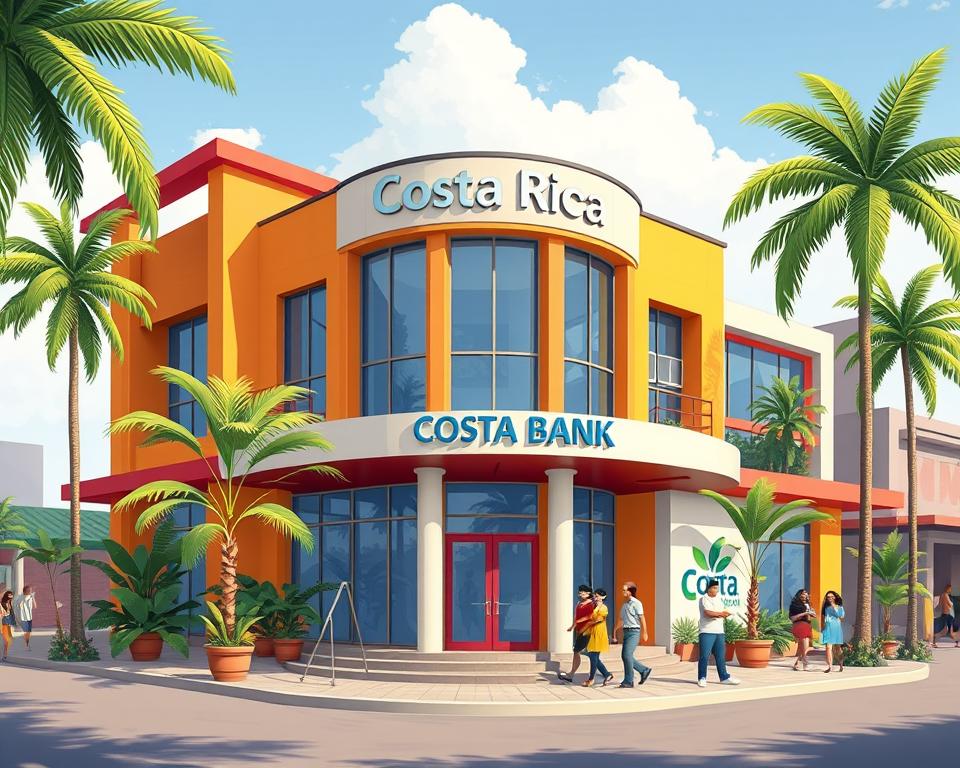Real Estate Business in Costa Rica: Coast to Coast Expertise
At Gap Real Estate (Grupo Gap LLC SRL), we simplify buying, selling, or investing in this tropical paradise. With over two decades of coast-to-coast experience, we deliver seamless transactions through expert guidance and clear communication.
Costa Rica has become a hotspot for international investors and property buyers due to its favorable investment climate, stunning geographical diversity, and growing tourism industry. Our expertise helps navigate the nuances of the real estate market, ensuring a smooth transaction process.
We will guide you through the key factors that make Costa Rica attractive for investment opportunities, including political stability and strong property rights.
The Costa Rican Real Estate Landscape
Costa Rica’s unique blend of natural beauty and economic stability attracts investors worldwide. The country’s real estate market is characterized by its diverse landscapes, ranging from lush rainforests to pristine beaches, making it an ideal location for various types of investments.
Current Market Trends and Opportunities
The Costa Rican real estate market is experiencing significant growth, driven by both local demand and international investment. Trends indicate a strong preference for properties in coastal areas, particularly those with ocean views or proximity to tourist attractions. Opportunities abound in the vacation rental market, with platforms like Airbnb fueling demand for short-term rentals.
Investors are also looking towards sustainable and eco-friendly developments, aligning with Costa Rica’s commitment to environmental conservation. This trend not only supports the local ecosystem but also appeals to the growing demographic of eco-conscious travelers and residents.
Why Costa Rica Attracts International Investors
Costa Rica’s political stability and economic growth make it an attractive destination for international real estate investors. The country’s reputation as the “Switzerland of Central America” underscores its reliability and safety, factors that are crucial for investment decisions.
Furthermore, Costa Rica’s strong tourism industry supports a robust vacation rental market, providing a steady stream of potential income for property investors. The quality of life in Costa Rica, characterized by excellent healthcare, safety, and natural beauty, also attracts expatriates and investors alike, creating a demand for both residential and commercial properties.
Gap Real Estate: Your Trusted Partner for 20+ Years
Gap Real Estate stands out as a reliable partner for individuals looking to invest or relocate in Costa Rica, backed by over 20 years of industry expertise. With a deep understanding of the local real estate market, we simplify every step of the process, ensuring clarity, confidence, and a stress-free experience for our clients.
Our Coast-to-Coast Experience
Our extensive experience across Costa Rica’s diverse regions enables us to offer coast-to-coast expertise. From the sunny beaches of Guanacaste to the vibrant culture of the Central Valley and the tranquil landscapes of the Caribbean coast, we have the knowledge to guide you through the intricacies of the local real estate business.
Our comprehensive understanding of the Costa Rican property market allows us to identify opportunities that match our clients’ needs, whether they’re looking for a beachfront property, a mountain retreat, or an urban investment.
Our Commitment to Client Success
At Gap Real Estate, our client-centered approach is built on transparency, education, and personalized service. We take the time to understand each client’s goals and preferences, providing tailored guidance throughout the real estate transaction process.
- We offer a comprehensive consultation process to clarify client goals and find the perfect property match.
- Our communication protocols ensure clients remain informed and confident throughout the transaction.
- We share testimonials from satisfied clients who have successfully navigated Costa Rican real estate with our guidance.
Our commitment extends beyond the transaction, with ongoing support services designed to help clients integrate into their new communities. By choosing Gap Real Estate, clients benefit from our dedication to ethical business practices, ensuring a smooth and successful real estate experience in Costa Rica.
Legal Requirements for Real Estate Business in Costa Rica
Navigating the legal landscape is crucial for success in Costa Rica’s real estate market. As a hub for international investment, Costa Rica has established various legal requirements that real estate professionals must adhere to.
Immigration Status and Residency Options
For foreign real estate agents or investors, understanding immigration status and residency options is vital. Costa Rica offers several residency categories, including pensionado, rentista, and inversionista, each with its own set of requirements and benefits. Choosing the right residency status can significantly impact one’s ability to operate a business effectively in the country.
Business Structures for Real Estate Operations
The structure of your business can have significant legal and tax implications. In Costa Rica, real estate businesses can be established as sole proprietorships, corporations, or limited liability companies. Each structure has its advantages and disadvantages, and selecting the most appropriate one depends on various factors, including the size of the business and the number of investors involved.
Licensing and Association Memberships
Unlike many countries, Costa Rica does not require a real estate license to operate. However, joining professional associations can enhance credibility and provide networking opportunities. The two main associations are the Cámara Costarricense de Corredores de Bienes Raíces (CCCBR) and the Costa Rica Global Association of Realtors (CRGAR). Membership in these organizations can offer access to educational resources and voluntary certification courses, which can be beneficial for real estate professionals.
Additionally, real estate agents must comply with the SUGEF 15 bis registration requirement, aimed at preventing money laundering. While there are currently no mandatory licensing requirements, proposed legislation, such as Bill #20761, may change this in the future, potentially establishing mandatory licensing for real estate professionals in Costa Rica.
Navigating Property Regulations and Zoning Laws
To ensure a smooth and profitable real estate venture in Costa Rica, it’s vital to comprehend the country’s zoning regulations and property laws. Once you’ve established your business structure and opened a bank account, you’ll need to obtain an operator’s license, known as a Patente Comercial, which includes a zoning request certification called Certificado de Uso de Suelo. This certification is crucial as it confirms that your chosen location is zoned for commercial use.
Understanding Costa Rican Zoning Regulations
Costa Rican zoning regulations are designed to balance development with environmental conservation. The Certificado de Uso de Suelo is a critical document that ensures your business complies with local zoning laws. We will guide you through the process of obtaining this certification and understanding the specific zoning requirements for your property. Our expertise will help you navigate the complexities of Costa Rican zoning regulations, ensuring that your investment is compliant and poised for success.
Coastal Property Considerations and Restrictions
Coastal properties in Costa Rica are subject to the Maritime Zone Law (Ley de Zona Marítima Terrestre), which significantly impacts ownership and development. The law divides the coastal area into two zones: a public zone (the first 50 meters from high tide) and a restricted zone (the next 150 meters). We will clarify the concession system for properties within the Maritime Zone and outline special considerations for beachfront property development, including environmental permits and setback requirements. Our goal is to provide you with a clear understanding of the regulations and strategies for safely investing in coastal properties.
By understanding these regulations and working with experienced professionals, you can navigate the complexities of Costa Rican property laws and make informed investment decisions.
Financial Aspects of Real Estate Business in Costa Rica
Understanding the financial landscape is crucial for success in Costa Rica’s real estate market. As a foreign investor, navigating the financial aspects of real estate business in Costa Rica can be complex, but with the right guidance, you can make informed decisions that maximize your investment.

Banking Requirements for Foreign Investors
Foreign investors in Costa Rica’s real estate market need to understand the banking requirements to facilitate their transactions. Opening a local bank account is often necessary for managing property transactions, rental income, and other business operations. Costa Rica offers various banking options, including banks that cater specifically to foreign investors and provide services in multiple currencies.
Some banks offer specialized accounts for non-residents, making it easier for foreign investors to manage their financial transactions. It’s essential to research and compare the services and fees associated with different banks to find the best fit for your business needs.
Tax Obligations and Incentives
Costa Rica has a structured tax system that applies to real estate businesses. Some of the taxes include a 13% value-added tax on income, a 10-30% corporate income tax, a 3.8% property transfer tax, and an annual 0.25% property tax on the value of owned property. Understanding these tax obligations is crucial for financial planning.
Additionally, Costa Rica offers tax incentives for small businesses, with graduated tax rates based on gross income. For instance, companies with gross income up to $91,000 are taxed at 10%, while those with income between $91,000 and $183,000 are taxed at 20%. Businesses with income exceeding $183,000 are taxed at 30%.
Currency Considerations and Exchange Rates
Costa Rica operates in a dual-currency environment, with both the local colón and the US dollar commonly used in real estate transactions. This dual-currency system can impact your business, particularly when dealing with international clients or transactions.
Exchange rate fluctuations can significantly affect the value of your investments and the profitability of your business. Therefore, it’s crucial to implement strategies for managing currency risk, such as holding multi-currency accounts or timing currency exchanges to maximize value.
Step-by-Step Guide to Property Transactions
Understanding the intricacies of Costa Rican property transactions is vital for both local and international investors. When engaging in real estate transactions in Costa Rica, it’s crucial to follow a structured process to ensure a smooth and successful transfer of property ownership.
Due Diligence Process
The due diligence process is a critical step in any property transaction in Costa Rica. It involves verifying the property’s legal status, ensuring there are no outstanding liens or debts, and confirming the seller’s ownership. We recommend working with a reputable real estate agent and a qualified attorney to conduct a thorough title search and review of the property’s history.
This process helps identify potential issues early on, allowing for a more efficient transaction. It’s also an opportunity to assess the property’s value and ensure it aligns with the sale price.
Legal Documentation and Contracts
Once the due diligence process is complete, the next step is preparing and signing the necessary legal documents. This includes the sale-purchase agreement and the escritura pública (public deed), which is the official document that transfers ownership. Our team ensures that all documents are properly prepared and executed, complying with Costa Rican law.
It’s essential to understand the terms of the contract, including any conditions, payment schedules, and obligations of both the buyer and seller.
Closing Procedures and Transfer of Ownership
The final step in the property transaction process is the closing, where the ownership is officially transferred. This involves presenting the signed public deed to the Public Registry (Registro Público) for recording. We guide our clients through this process, ensuring that all necessary fees are paid and the transfer is successfully registered.
After the transfer, we assist with updating the property records and ensuring that all tax obligations are met.
Regional Investment Opportunities: From Coast to Coast
Costa Rica’s diverse regions offer a wide range of investment opportunities in the real estate sector. As we explore the different areas, you’ll discover unique characteristics and potential for growth in various markets.
Pacific Coast Properties: Guanacaste to the Southern Zone
The Pacific coast of Costa Rica is renowned for its stunning beaches and thriving tourism industry. Properties in Guanacaste, known for their dry tropical climate, are particularly popular among investors. The region offers a range of opportunities, from luxury beachfront developments to more affordable inland properties. As you move south to areas like the Southern Zone, you’ll find a more laid-back atmosphere and opportunities for eco-tourism-related investments.
- Luxury beachfront properties in Guanacaste
- Affordable inland properties for rental income
- Eco-tourism opportunities in the Southern Zone
Central Valley Real Estate Market
The Central Valley, including areas like San José and surrounding towns, offers a different investment landscape. This region is characterized by a more urban environment, with opportunities in commercial and residential real estate. The Central Valley is attractive due to its stable demand for housing and commercial spaces, driven by Costa Rica’s growing economy and population.
Caribbean Coast Investment Potential
The Caribbean coast of Costa Rica presents a distinct investment opportunity, with its unique cultural heritage and natural beauty. Areas like Puerto Viejo, Cahuita, and Limón offer a more laid-back atmosphere and are gaining popularity among tourists and investors alike. The typically lower price points on the Caribbean coast compared to the Pacific coast make it an attractive option for those looking for affordable investment opportunities. As we explore the Costa Rica real estate, it’s clear that the Caribbean coast has significant potential for growth.
When considering investment in Costa Rica’s real estate, it’s essential to evaluate the various regions based on your investment goals and risk tolerance. Whether you’re drawn to the beach life on the Pacific coast, the urban opportunities in the Central Valley, or the cultural richness of the Caribbean coast, Costa Rica offers a diverse range of property investment options.
How Gap Real Estate Ensures Seamless Transactions
We pride ourselves on being a trusted partner for individuals looking to invest or relocate to Costa Rica. At Gap Real Estate, we understand that navigating a new real estate market can be challenging, which is why we’re committed to providing a stress-free experience for our clients.
Our End-to-End Support Services
Our comprehensive support services are designed to simplify every step of the real estate process. We offer:
- Personalized property searches tailored to your needs
- Expert guidance through the buying or renting process
- Assistance with legal documentation and contracts
- Ongoing support for property management and maintenance
Relocation Assistance and Local Integration
Relocating to Costa Rica involves more than just finding a property. Our relocation services help clients transition smoothly to life in Costa Rica, whether as full-time residents or part-time property owners. We assist with:
- Practical aspects of relocation, such as shipping logistics and setting up utilities
- Orientation services to navigate local customs and healthcare options
- Connecting clients with expatriate communities and local networks
At Gap Real Estate, we’re dedicated to being a long-term resource for our clients as they build their lives or investment portfolios in Costa Rica.
Conclusion: Building Your Real Estate Success in Paradise
As we conclude our exploration of Costa Rica’s real estate landscape, it’s clear that the country’s unique blend of natural beauty and business-friendly environment makes it an attractive destination for investors. With over 20 years of experience, Gap Real Estate is your trusted partner for navigating the complexities of Costa Rica’s real estate business.
Our end-to-end support services, deep local knowledge, and results-driven approach ensure that your real estate venture is successful, whether you’re finding your dream home or securing a strategic investment. We invite you to take the next step in your Costa Rican real estate journey with confidence.




